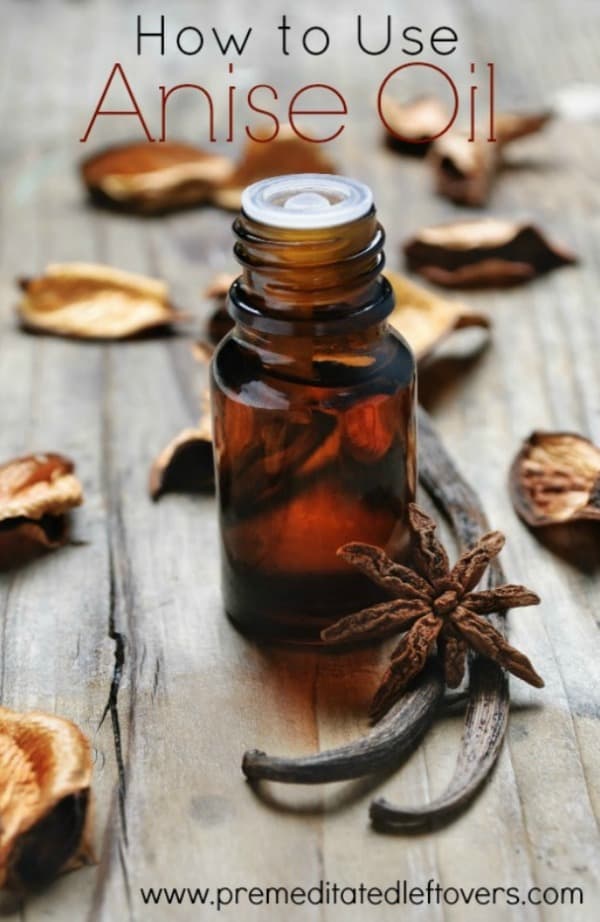Anise oil has a variety of uses including natural health treatments, homemade beauty products, and flavoring in desserts.

You may have enjoyed the flavor of anise in desserts and specialty beverages, as it offers a black licorice flavor that is quite sweet and distinct. If you enjoy the flavor of anise, and many people do, then anise oil may be an oil that you find benefit from as well. Anise oil is not commonly talked about when speaking about essential oils or cooking oils, but the truth is it has its beneficial uses and should not be overlooked. If you want to know more about anise oil, take a look below at some helpful tips on How to Use Anise Oil in your own home.
Ways to Use Anise Oil
Where to Find Anise Oil
Before we begin, let’s talk about where you can find anise oil. You can find anise oil where essential oils are sold, often at a local health shop or specialty grocer. Or, you can always buy anise oil online as well. If you wish to make your own anise oil you very well can. To make your own you would need to grind anise seeds into powder and then add it to a carrier oil such as almond oil. Allow it to sit for one week. Strain the oil of any remaining bits of anise from the oil and you now have anise oil!
How to Use Anise Oil
If using anise oil on the body, you should mix it with a carrier oil first. An example of a suitable carrier oil would be something like coconut oil or almond oil. Anise oil on its own is quite strong and some users may be sensitive to it. Instead, mix it with a carrier oil so it is not as concentrated. When using it in cooking, there is typically no need to add a carrier oil, you can just use it as is and be sure to use a food grade anise oil. You will want to start small and gradually build flavor, as anise oil is strong and a little goes a long way.
10 Uses for Anise Oil
Now that you know where to find anise oil and how to use it, let’s talk about the various ways you can use it. You will find that anise oil can be quite effective in helping relieve some common health issues.
1. Relieve cramps- Add a few drops of anise oil to almond oil and massage onto the abdomen. This can help ease muscular and menstrual cramping.
2. Hiccups- Add a few drops to a diffusing device and inhale. The steam should help relieve hiccups.
3. Freshens breath- You can add a few drops of anise oil to warm water and use as a gargle to treat bad breath.
4. Lessen nausea- If nausea is an issue, you can diffuse in your space or add a few drops to your palms and inhale.
5. Clean wounds- Anise oil can be dabbed on wounds to help clean the area and lessen chances of infection.
6. Keep pests away- Bugs hate the scent of anise. Add a few drops to a cotton ball and place anywhere that mice are an issue.
7. Soothe sore muscles- Add a few drops of anise oil to your massage creams or lotions to help soothe sore and aching muscles.
8. Break up congestion- You can diffuse anise oil in a space where you are present and it can help loosen up congestion.
9. Add flavor- If you like the flavor of anise, you can add a few drops of food grade anise oil to desserts and beverages. It works well in cookies, cakes, and breads.
10. Give beauty products a pop of fragrance- Anise can be added to any of your homemade beauty products for a pleasant scent.
Anise oil can be quite beneficial and is one that is worth checking out. If you are looking for some natural home remedies or just a way to add the unique anise flavor to your cooking, check out anise oil and see if it is an oil that works for you.
More Uses for Essential Oils:
How to Use Fennel Essential Oil
10 Household Uses for Lavender Oil
20 Uses for Lemon Essential Oil
This was originally published on March 9, 2016, but was updated April 6, 2018.

Leave a Reply